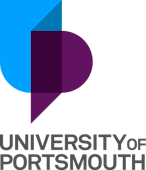Keiron Roberts is a Senior lecturer in sustainability and built environment within the School of Civil Engineering and Surveying at the University of Portsmouth.
He works within the Research England funded GreenTech South Innovation hub. He is researching disruptive markets and policies to enable the uptake of new renewables, energy storage and market pricing to improve the islands energy autonomy as part of the Innovate UK funded Isle of Wight Energy Autonomous Community project. He is currently coordinating the UNEP IRP marine plastic litter think piece for delivery at the upcoming G20 events.
Keiron is a visiting research fellow at the University of Southampton where he previously held the position of research fellow. He is contributing to two research projects investigating the potential application of the circular economy model within the operations of a large water and wastewater company (Southern Water, ZeroWIN), and part of the continued development of the solid waste infrastructure model of GB within the MISTRAL project (EPSRC funded), with outputs influencing the UK's waste management infrastructure. Prior to his postdoctoral work he completed a PhD funded by EPSRC and the EU FP7 All Gas project, investigating the use of marine micro algae for biogas production.
Keiron is a researcher with expertise in wastewater, solid waste and energy systems and resource management and technologies, with a particular focus on sustainability and the circular economy.
Experience
-
2021–presentLecturer, University of Portsmouth
-
2022–presentSenior lecturer, University of Portsmouth
-
2018–2021Research fellow, University of Portsmouth
-
2016–2018Research fellow, University of Southampton
-
2016–2016Research fellow, Open University
Education
-
2016University of Southampton, PGCE Secondary and Tertiary Physics
-
2015University of Southampton, PhD Civil Engineering
-
2011University of Southampton, MSci Oceanography
Publications
-
2023From shops to bins: a case study of consumer attitudes and behaviours towards plastics in a UK coastal city,
-
2023Turning off the Tap: How the world can end plastic pollution and create a circular economy,
-
2022A new treaty process offers hope to end plastic pollution,
-
2022Struvite precipitation within wastewater treatment: a problem or a circular economy opportunity?,
-
2021Policy Options to Eliminate Additional Marine Plastic Litter by 2050 under the G20 Osaka Blue Ocean Vision: An International Resource Panel Think Piece,
-
2021Increased personal protective equipment litter as a result of COVID-19 measures,
-
2020Demand Response Model Development for Smart Households Using Time of Use Tariffs and Optimal Control—The Isle of Wight Energy Autonomous Community Case Study,
-
2019Semi-continuous anaerobic digestion of the marine micro-algal species I. galbana and D. salina grown under low and high sulphate conditions,
-
2018Applying circular economy thinking to industry by integrating education & research activities,
-
2018SWIMS: A dynamic life cycle-based optimisation and decision support tool for solid waste management,
-
2016Quantification of methane losses from the acclimatisation of anaerobic digestion to marine salt concentrations,
-
2016Comparative testing of energy yields from micro-algal biomass cultures processed via anaerobic digestion,
-
2015Anaerobic Digestion of Marine Microalgae, Thesis
-
2013Dissolved trace metals (Ni, Zn, Co, Cd, Pb, Al, and Mn) around the Crozet Islands, Southern Ocean,
Grants and Contracts
-
2021SHAPE UK
- Role:
- Primary researcher and WP lead
- Funding Source:
- Innovate UK
-
2019Eliminating marine plastic litter
- Role:
- Primary researcher to inform the G20 on policies to reduce MPL
- Funding Source:
- Government of Japan
-
2019Newton Fund/ CEFAS travel grant
- Role:
- Travel grant to engage with researchers in Brazil
- Funding Source:
- Newton Fund
-
2019Smart Energy Systems - Isle of Wight Energy Autonomous Community
- Role:
- Primary researcher , determining the economic feasibility of novel energy systems and distribution methods.
- Funding Source:
- Innovate UK
-
2016MISTRAL
- Role:
- Researcher developing the Solid Waste Infrastructure Model (SWIMS) for the ITRC MISTRAL project
- Funding Source:
- Engineering and Physical Sciences Research Council
-
2015Institute of physics scholarship
- Role:
- Funding Source:
- Institute of Physics
-
2014FP7 All gas project
- Role:
- Knowledge exchange
- Funding Source:
- European Commission
Honours
MSci, PGCE, PhD
- Portsmouth
- Website
- @keiron_roberts
- Article Feed
- keiron.roberts@port.ac.uk
- ORCID
- Joined


